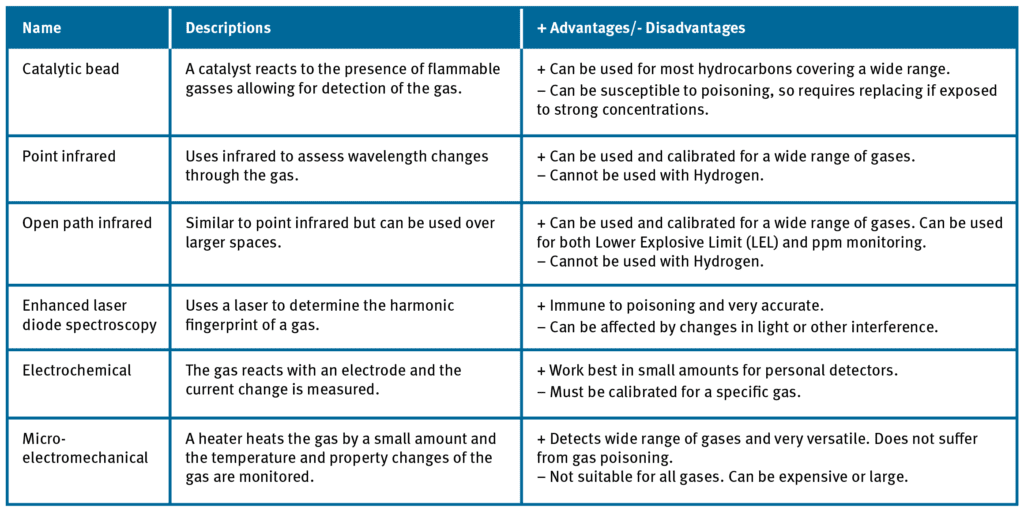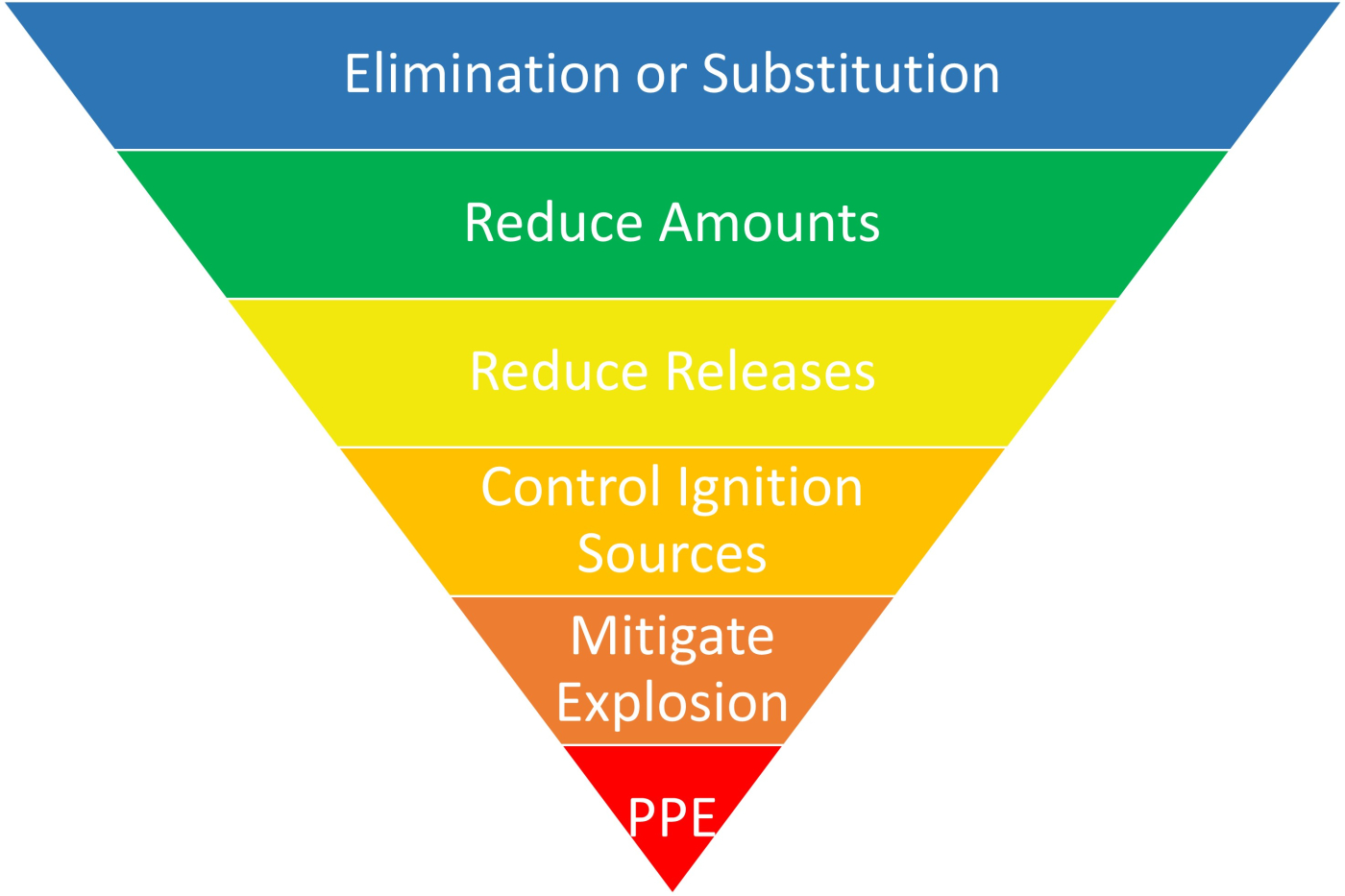Using Gas Detectors to work safely in hazardous environments.
In the second part of this three-part series, Tristan Pulford looks at the types of gas detectors available and their pros and cons. Look out for part three coming soon. You can catch up on part one here.
Types of Gas Detectors
There are portable and fixed gas detectors, both of which have their benefits and uses. For example, fixed gas detectors can be added to site-wide alarms, and interlock systems, while portable detectors can be used for personnel protection or for non-routine work.
Within these categories, there are different types of gas detectors, a summary of which are below with their advantages and disadvantages.
(Table credit to HSI Magazine)
The most common types are the Point and Open path infra-red systems, which are found on most personal multi-gas detectors.
Fixed or portable detector?
One of the key decision points relates to whether a fixed gas detector or a portable gas detector is better suited to your requirements. In general terms, a risk assessment can be used to determine what solution is best, and some solutions require both fixed and portable (local) detectors. In general, whether a fixed detector is required rather than portable detectors depends on the frequency of a person working in that area, as well as the area itself.
For example, people working on excavations for gas works, will move around and hence a fixed gas detector would not be feasible, and hence a reliance on portable gas detectors is used. This is also due to the importance of the control of ignition sources where a person can bring an ignition source into that area.
Alternatively, if a fixed process within a factory generates carbon monoxide due to combustion, then a fixed detector is more suitable for use, in areas where this may leak from. In this situation, however, a prudent operator may also ask their employees or people working in the vicinity to also carry a personal gas detector.
Part three is coming soon, but in the meantime, if you have any questions about what you have read please contact [email protected].
To subscribe to the Finch Consulting newsletter for updates please click here.







